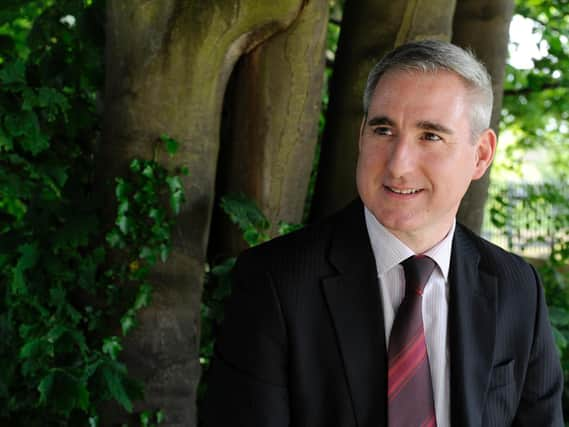How law '˜lets down families' dangerous drivers leave behind


Liberal Democrat MP, Greg Mulholland, is fighting for new laws to be passed which strengthen penalties, change bail conditions for those charged with offences and toughen up investigations by the police and courts.
He said in 2014/2015, 389 people were killed in England and Wales alone due to dangerous driving however 'victims of these serious crimes and their families have been let down'
Advertisement
Hide AdAdvertisement
Hide AdPresenting a Ten Minute Rule Bill, which is one of the ways MPs can suggest changes to law, he said: "We need a number of changes to make sure proper justice is delivered in the future."
His campaign follows the death of three of his constituents between 2010 and 2012, and their families have been campaigning for tougher sentences for several years.
He said: "I had two awful cases. The case of 16-year-old Jamie Still, killed by a reckless criminal driver on New Year's Eve in 2010, and then David and Dorothy Metcalf from Cookridge killed in January 2012 and I dedicate this bill to the memories of Jamie, David and Dorothy, and all who have lost their lives from these serious crime."
Reforms should be in four areas, according to Mr Mulholland, who met with Justice Minister Michael Gove and 21 fellow MPs on Monday to tell him about the changes he believes are necessary.
Advertisement
Hide AdAdvertisement
Hide AdThey are strengthening penalties related to serious criminal driving offences that lead to serious injury or death, redefining offences and amending bail conditions, enhance standards of investigations by police and the courts and improve treatment of victims and their families.
He said: "The distinction between careless and dangerous driving is a false and unhelpful one, often coming to slight and subjective difference between someone's driving below or well below what is expected of a competent driver.
"But the problem is people are simply given charges of the lesser charge of careless driving rather than dangerous driving because it's easier for prosecutors to seek a conviction."
Penalties for careless driving is a maximum of five years, whereas it's 14 years for dangerous driving, therefore the difference in time people serve in prison is significant.
Advertisement
Hide AdAdvertisement
Hide AdHe said: "Careless is an inappropriate and actually offensive term to use for criminally bad driving particularly where it has resulted in horrendous suffering and even driving that falls slightly below the standards - a momentary lapse of concentration - actually, it may be careless but it is still dangerous."
He said attempting to class something as careless, rather than dangerous, has led to 'institutionalised dishonesty' within the justice system and he suggests both offences are scrapped, and replaced with one charge that has various categories of sentencing, with a maximum of 14 years.
Changing bail conditions so there is an automatic ban on driving for those charged before their case meets court is also essential, he added.
He said: "In the case of Jamie Still, the perpetrator of that crime was driving for nine months in the very area, the very town where he killed 16-year-old Jamie."
Advertisement
Hide AdAdvertisement
Hide AdJustice Secretary Michael Gove is set to introduce a consultation on proposed changes later this year, with a final decision made in 2017 on potential reforms.
The Bill was granted a second reading and will be heard again in the Commons on March 11.